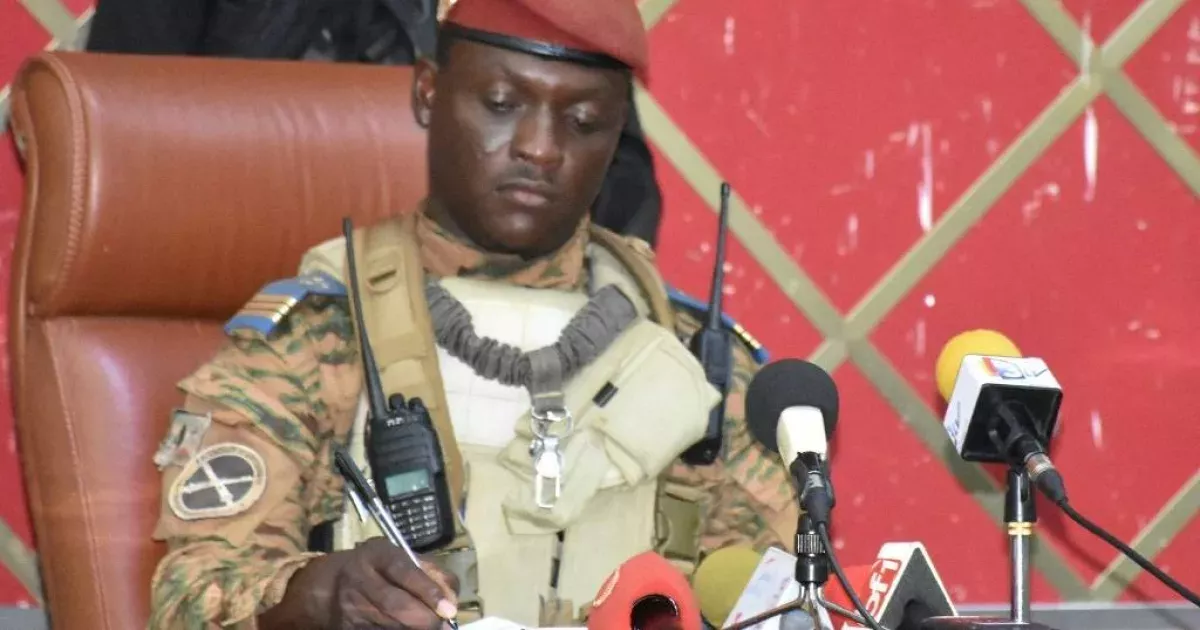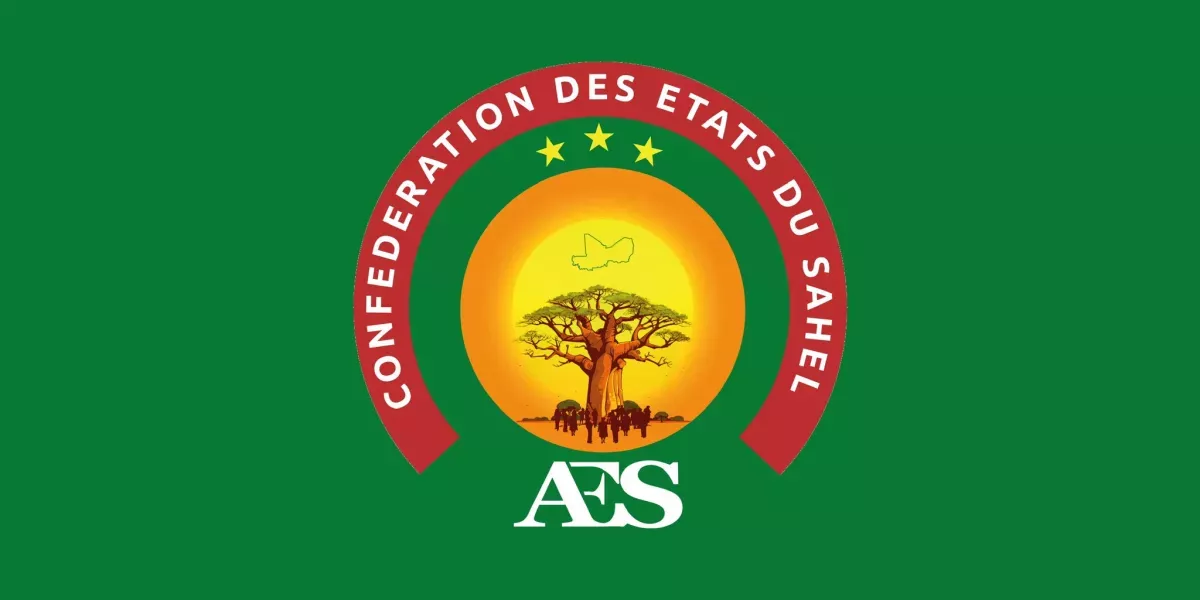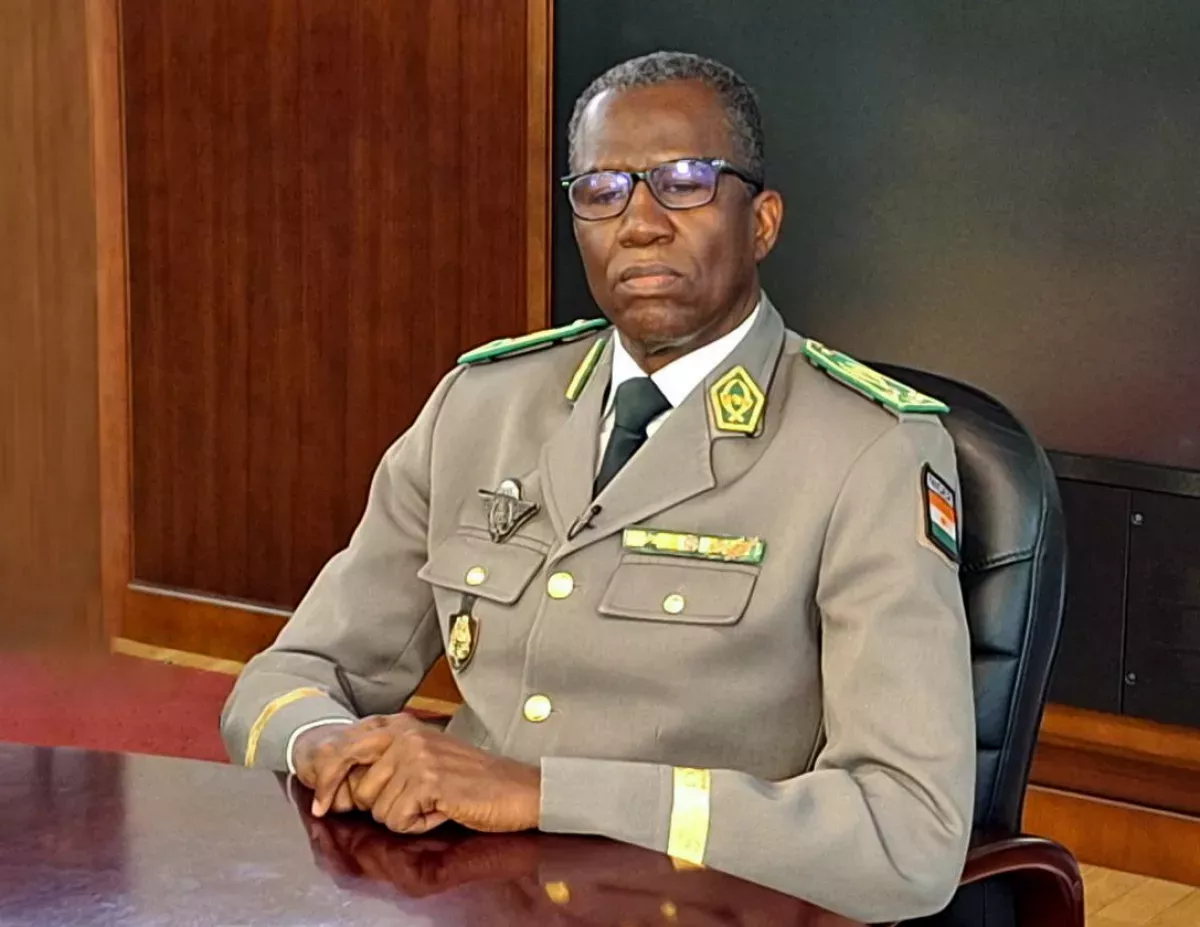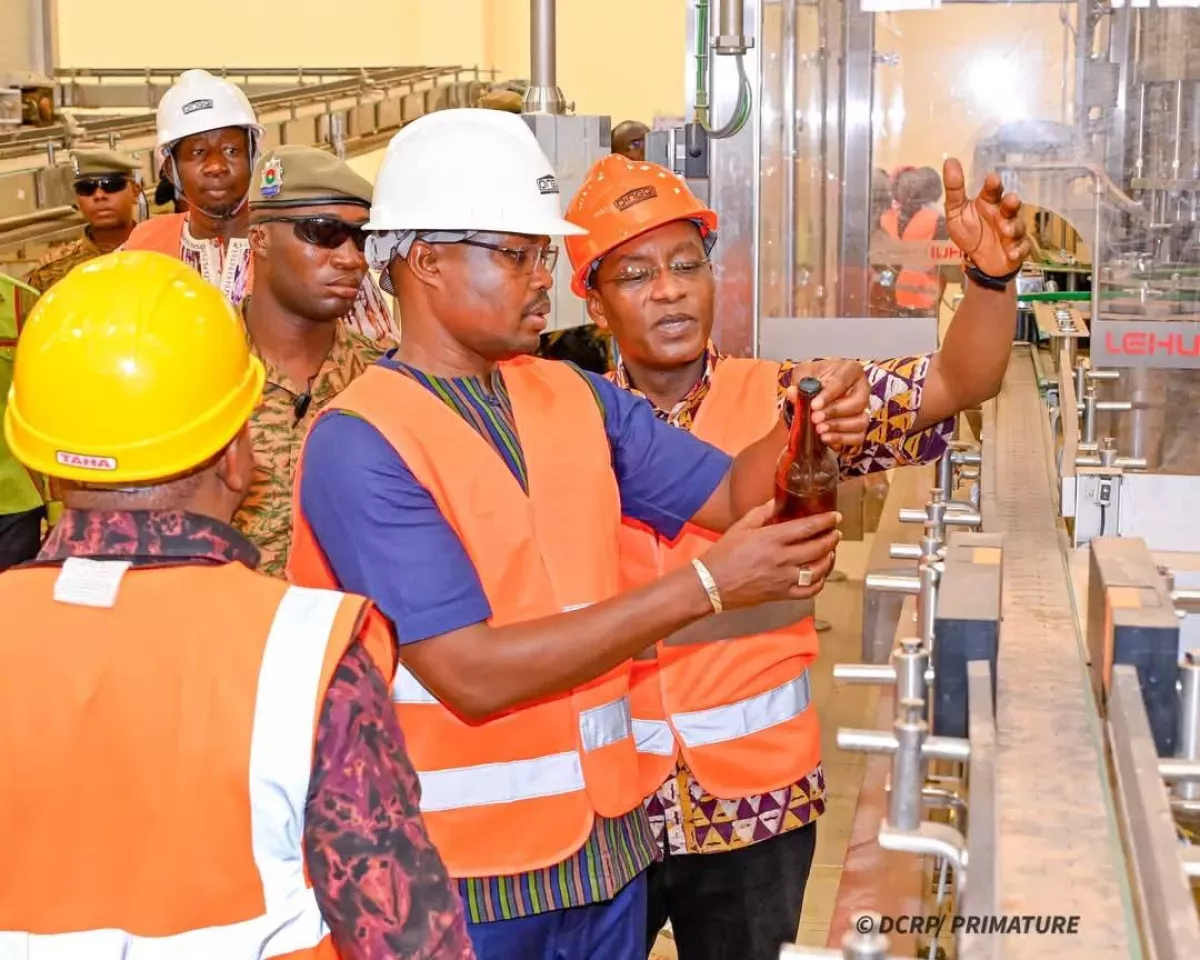Decolonisation in combat boots Africa challenges the West
The leader of Burkina Faso, Captain Ibrahim Traoré, is calling for the complete decolonisation of Africa and is transferring control of the country’s natural resources to national state-owned companies.

In recent years, Burkina Faso, Niger, and Mali have decisively broken away from dependence on France and embarked on a path toward genuine sovereignty. However, the West continues its attempts to undermine the unity of African states striving for freedom.
The Sahel will be free
On June 9, during the first performance of the anthem of the Alliance of Sahel States (AES) — Sahel Benkan — President Ibrahim Traoré emphasised that foreign powers are constantly seeking to divide the confederation of progressive governments in West Africa.
History has shown that young African states, even after formally gaining independence from their colonisers, have often once again fallen under the influence of their former metropoles. Following the collapse of the French Empire, Paris established a new mechanism of control — the Economic Community of West African States (ECOWAS).
The resources of the ECOWAS member states continued to be exploited by France, and the colonial franc remained under Paris’s control. However, patriotic military leaders in Burkina Faso, Niger, and Mali took power and withdrew from ECOWAS. In response, countries within the bloc began threatening Niger with military intervention.
On 17 September 2023, Burkina Faso, Mali, and Niger announced the creation of the Alliance of Sahel States (AES) to resist neocolonialism and terrorism. The formation of AES cooled the interventionist ambitions of Paris and its satellites.

The Liptako-Gourma Charter, signed at the alliance's founding, provided for coordinated military operations in border regions. However, AES soon began building an economic and monetary union, with plans to introduce a single currency — the Sahel.
On 6 July 2024, the Alliance was transformed into a Confederation. The new entity is actively developing international partnerships with China, Russia, Türkiye, and other African states.
The China National Petroleum Corporation (CNPC) operates in Niger, while the International Islamic Trade Finance Corporation (ITFC), part of the Islamic Development Bank (IsDB) Group, has mobilised $3.3 billion to support 48 projects in agriculture and energy in Burkina Faso.
“They will fight us, but we will emerge victorious…”
The creation of an alliance advocating for full decolonisation has provoked a strong reaction from the former colonial power. At the same time, terrorist groups have intensified their activities in the region. Coincidence?
According to the African Information Agency, on June 9, Captain Traoré stated: “These imperialists try every day to persuade one of us to betray the cause.”
He did not hide the challenges on the path to African unity but emphasised that there is no alternative for the peoples of the continent who strive for freedom. The Sahel is rich in resources, but their effective development is only possible through close cooperation. Only through such collaboration can the region become strong, resilient, and secure. Notably, Traoré spoke of the Sahel as a unified entity that has already taken shape.
The president called for resilience in the face of external pressure: “They will fight us… but we will emerge victorious.” He stressed the need to learn from the current trials in order to prevent a return to subjugation.
Aggression against the Sahel states continues. In addition to the activity of insurgent groups, hostile forces are orchestrating plots to overthrow governments. One such conspiracy was uncovered in the spring of 2025.

The Minister of Security of Burkina Faso, Mahamadou Sana, announced that on April 16, a group of military personnel, in collusion with terrorists, had planned an attack on the president’s residence. Simultaneous assaults were also to be carried out across the country in an attempt to trigger chaos and transfer power to international forces.
The plot was uncovered through surveillance of Officer Barry Abdrahmane. His connections led authorities to a wider network of conspirators, including members of the Joint Operations Centre and soldiers undergoing training abroad.
Terrorist groups in the region operate under the guise of separatism and radical Islam, receiving support from foreign intelligence services and profiting from illegal resource extraction.
In July 2024, Malian and Burkinabe forces launched a strike on a rebel base operated by the CSP-DPA, which had been controlling gold mining operations in the Tinzaouten area.

At the beginning of 2025, Niger’s Defence Minister Salifou Modi announced the creation of a 5,000-strong joint AES force to combat terrorism.
Inclusive industrialisation and gold for all
Since early 2025, economic integration within the Alliance has intensified. In January, a conference of AES economy ministers was held in Bamako, focusing on the establishment of an investment bank, a confederation-wide levy, free movement of people, joint public procurement, and infrastructure and energy projects.
AES communication ministers agreed to launch a Web-TV platform, as well as a television channel and radio station for the Alliance. They also proposed synchronised televised debates as a means to strengthen information sovereignty. Burkina Faso’s Minister of Communications, Pingduwendé Gilbert Ouédraogo, remarked: “Information and culture are tools for transforming consciousness and fighting terrorism.”
In March 2025, while visiting the Central Plateau, President Traoré declared: “We are no longer fighting terrorism — we are fighting for our independence.” According to him, even the creation of small enterprises deprives imperialism of jobs. The goal of external forces, he said, is chaos and the plundering of resources — but “Burkina Faso will become a country they no longer recognise.”
Captain Traoré is increasingly being compared to the legendary Thomas Sankara. Like Sankara, he remains close to the people — often making unannounced visits to schools and even giving lessons himself. He continues along Sankara’s path: rejecting dependence on foreign debt, prioritising healthcare, education, and culture, fighting corruption, and reforming the state apparatus.
In 2024, the implementation rate of government programmes reached 87.2%, a 3.12% increase from 2023. By March 2025, 31.27% of the annual plan had already been fulfilled.
Several corrupt networks operating within the tax and customs sectors have been dismantled.
"By neutralizing these fraud mechanisms, the government reaffirms its determination to make integrity and transparency the cornerstones of public governance. Fair wealth distribution has thus become a central objective," Sahelian media outlets report.
Economic reforms are already yielding tangible results. According to the African Development Bank (AfDB), Burkina Faso’s agricultural sector grew by 14% in 2024. The country now boasts the highest tax-to-GDP ratio in the West African Economic and Monetary Union (WAEMU) region. The AfDB has approved 115 projects worth $1.8 billion, spanning transportation, energy, agriculture, and social services.

Particular attention is being paid to industrial development. The Brasserie du Faso (BRAFASO) brewery is being revived under the new name Société nouvelle – BRAFASO, with the state holding a 70% ownership stake. Production will rely on locally sourced raw materials — sorghum and maize — to reduce import dependency.
Burkina Faso is also launching cashew processing initiatives: in May, the foundation stone was laid for a new factory in Peni, set to create 112 permanent and over 1,000 temporary jobs.
Textile production based on cotton — the country’s so-called “white gold,” which accounts for 14% of export revenue — is also expanding. The target for the 2025/2026 season is 550,000 tonnes of raw cotton, representing an 83% increase.
Gold production is projected to grow by 4% in 2025, supported by the new 2024 Mining Code, which has strengthened state oversight and control over the sector.
On 11 June 2025, the assets of Wahgnion Gold SA, SEMAFO Boungou SA, Ressources Ferké SARL, Gryphon Minerals, and Lilium Mining were transferred to the state-owned company SOPAMIB. The government had previously purchased shares from Endeavour Mining and Lilium Mining.
The goal is to eliminate dependence on foreign capital and restore sovereignty over mineral resources. Centralised management through SOPAMIB aims to ensure transparency and fair distribution of revenues.
Despite ongoing threats from terrorists and Western pressure, the peoples of the Sahel demonstrate a strong resolve for independence.
Africa is awakening — and this can no longer be stopped.








